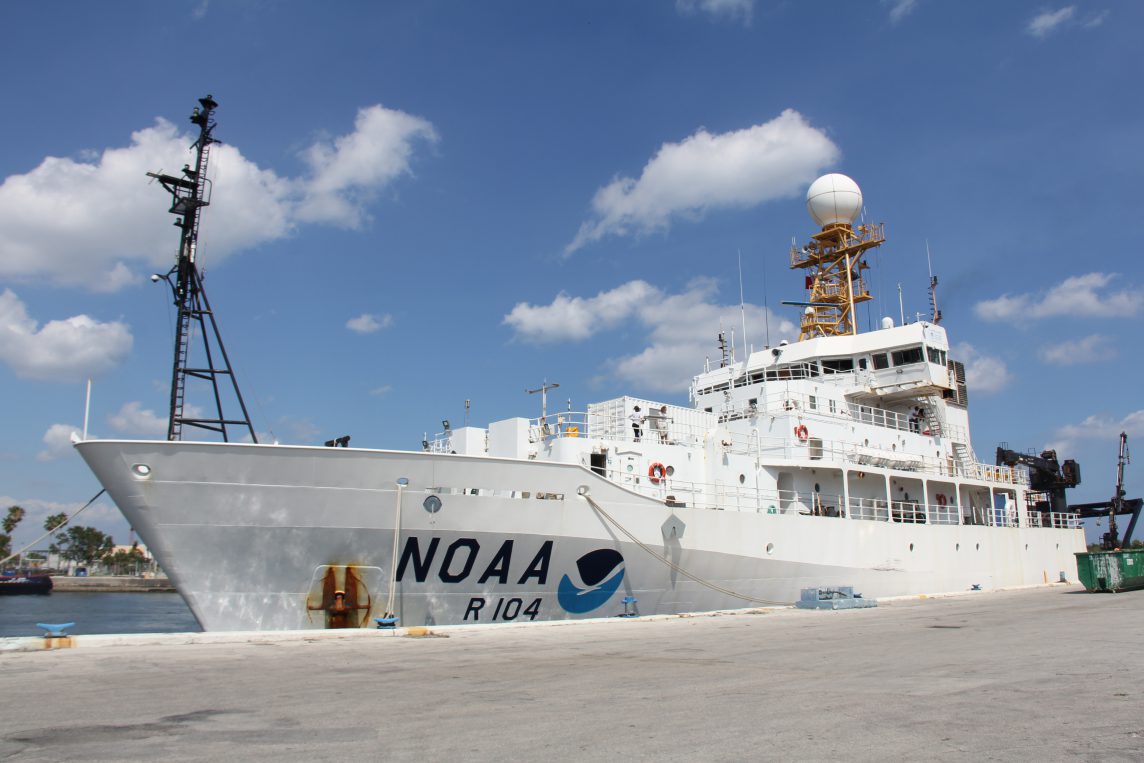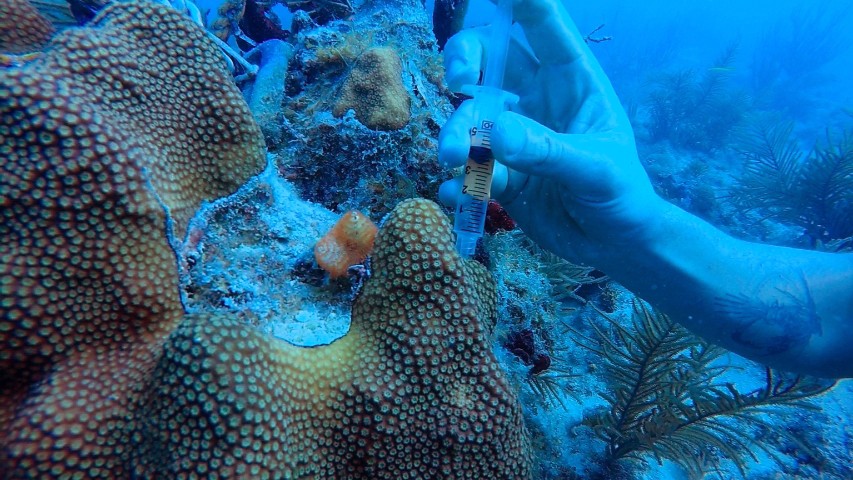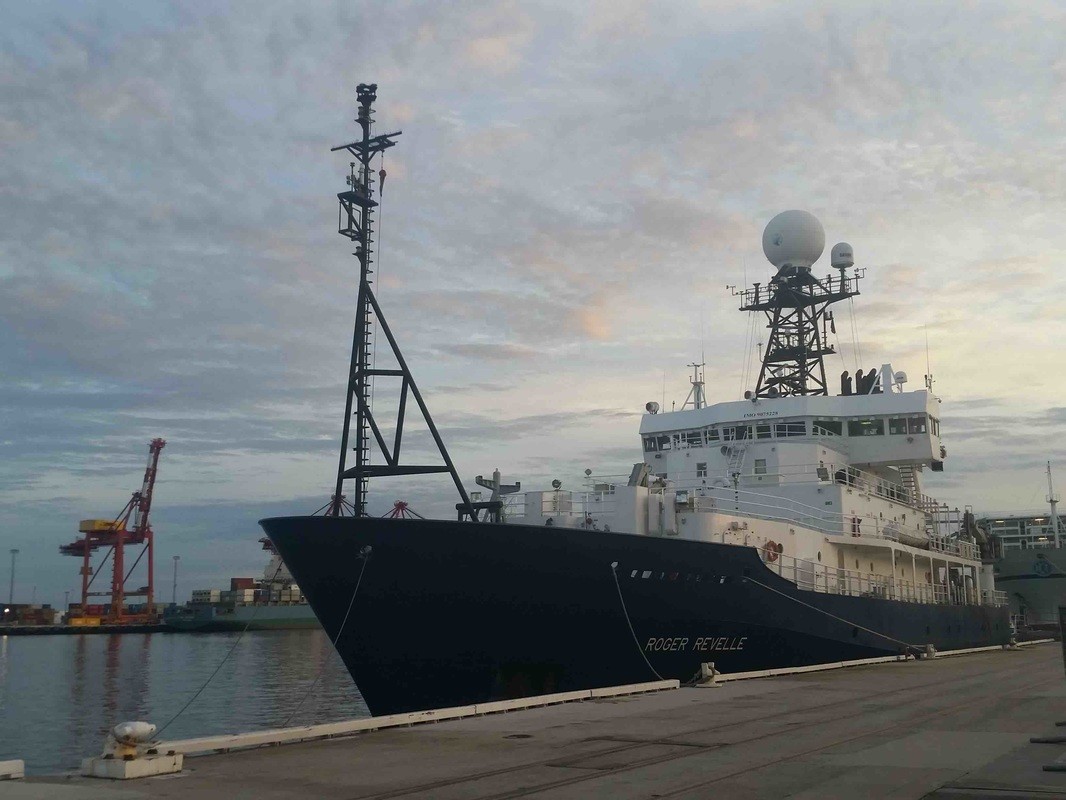Existing observations show that Indian Ocean surface water temperatures have been increasing since the 1970’s. But has the deep ocean warmed? Have the regional concentrations of dissolved oxygen, carbon dioxide, or nutrients changed? Has the western Indian Ocean become more acidic? These and more questions will be addressed by scientists after the completion of this cruise.
Land-Based Mircobes Affecting Coral Reefs
Scientists found that microbes and their genetic material from land-based sources of pollution could be found in reef water and in tissues of corals. This could affect the genomics of the native microbial communities found in coral reefs, which can impact how corals thrive and survive. These new insights highlight an additional potential threat to corals from land-based sources of pollution in southeast Florida, where corals are already under existential threat from warming oceans and resulting coral bleaching, disease and mortality.
AOML Oceanographers Collect Coast to Coast Measurements on the GO-SHIP Indian Ocean Cruise
During the months of March and April, AOML joined an international team of oceanographers to actively sample the Indian Ocean in support of the Global Ocean Ship-Based Hydrographic Investigation Program (GO-SHIP), an initiative to measure and investigate the ocean basins from coast to coast and from top to bottom. Aboard the R/V Roger Revelle, the team transected the Indian Ocean from the Antarctic northward into the Bay of Bengal, collecting seawater samples at 113 stations as part of a multi-decadal effort to measure various ocean properties, including temperature, salinity, nutrients, carbon and other gases.


